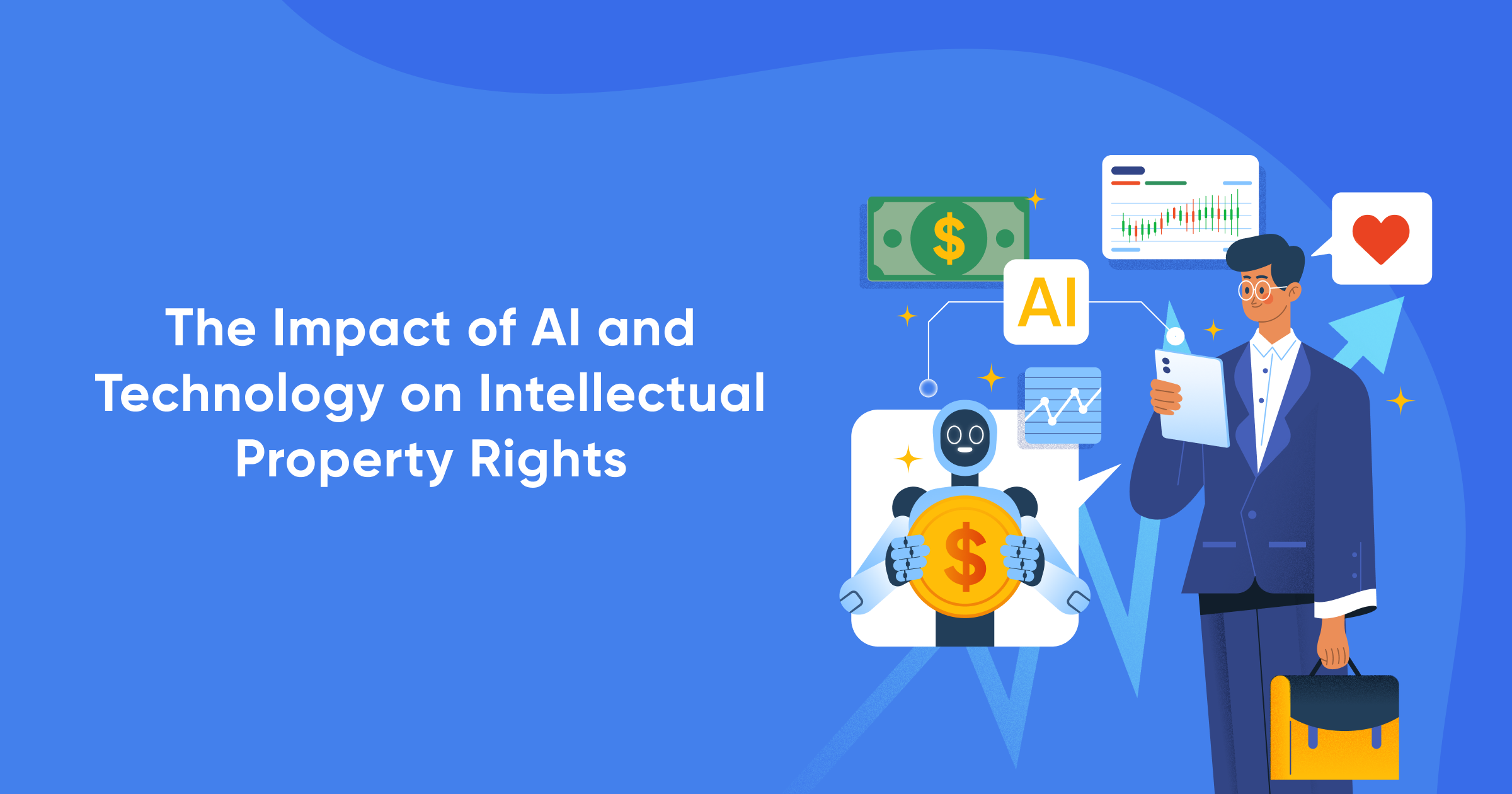Introduction
The rapid advancements in Artificial Intelligence (AI) and technology are reshaping various aspects of our lives, including the realm of Intellectual Property Rights (IPR). From automated content creation to AI-generated inventions, technology is pushing the boundaries of what can be protected under IPR laws.
However, this progress also brings challenges and questions around ownership, regulation, and enforcement. In this blog, we will explore the impact of AI and technology on IPR, the emerging challenges, and how businesses can navigate this evolving landscape.
How AI and Technology Are Transforming Intellectual Property
AI and technology have a significant influence on the creation, management, and enforcement of intellectual property. Here’s how:
- Creation of New Works and Innovations: AI systems can now generate content, designs, music, and even inventions. For example, AI-generated artworks or machine-invented patents raise the question of who owns the copyright or patent—the developer, the user, or the AI itself?
- Enhancing IP Management: Technology is streamlining IP management through automated trademark searches, predictive analytics for IP infringement risks, and blockchain for secure and transparent IP transactions.
- Improving IP Enforcement: AI-powered tools can detect IP infringements more efficiently by scanning vast amounts of data online, identifying unauthorized use of copyrighted works, patents, or trademarks.
Challenges Posed by AI and Technology to Intellectual Property
While technology offers new opportunities, it also presents unique challenges to traditional IP frameworks:
- Ambiguities in Ownership: AI-generated works challenge the conventional notion of authorship. Current laws are often inadequate to address the ownership of creations made without direct human intervention.
- Difficulty in Patentability: Determining whether AI-generated inventions meet the requirements for patentability—such as novelty, non-obviousness, and utility—can be complex. The role of human inventors and the level of AI autonomy in the invention process complicate this further.
- Enforcement Complexities: The use of AI in automated content generation also leads to a surge in potential IP infringements. Identifying and proving infringement, especially when AI can replicate styles or content without clear distinctions, becomes a daunting task.
- Regulatory Gaps: The current IP regulatory frameworks were not designed with AI in mind, leading to legal uncertainties and the need for updated policies to accommodate technological advancements.
The Role of AI in Intellectual Property Search and Analysis
AI-driven tools are revolutionizing how IP searches and analyses are conducted:
- Trademark Searches: Trademarkia can help you perform comprehensive trademark searches within seconds, reducing the time and effort required to identify potential conflicts. It can also predict the likelihood of approval or opposition based on historical data.
- Patent Analysis: AI tools can analyze vast patent databases to identify relevant patents, assess the novelty of inventions, and even suggest potential areas for new innovations. This capability enhances the strategic decision-making process for businesses and inventors.
- Copyright Monitoring: AI-based algorithms can monitor the internet for unauthorized use of copyrighted material, alerting creators to potential infringements. This proactive approach helps in protecting intellectual property in the digital space.
Legal and Ethical Considerations in AI and Intellectual Property
As AI continues to evolve, several legal and ethical considerations come into play:
- Ethical Use of AI: AI's ability to generate content or inventions raises ethical questions around originality, plagiarism, and the responsible use of technology. Ensuring that AI is used ethically in IP creation and management is crucial.
- Legal Frameworks and Reforms: To keep pace with technological advancements, legal reforms are necessary. Governments and IP authorities worldwide are beginning to address these issues, but there is a need for global standards and cooperation.
- Balancing Innovation and Protection: While technology encourages innovation, it also necessitates a balance between protecting creators' rights and fostering an environment where technology can thrive without excessive restrictions.
Future Trends in AI, Technology, and Intellectual Property
Looking forward, AI and technology will continue to shape the future of intellectual property in various ways:
- AI as Co-Creator: We may see the emergence of IP frameworks recognizing AI as co-creators or inventors, leading to new types of IP rights and ownership structures.
- Blockchain for IP Protection: Blockchain technology could play a pivotal role in IP protection by providing secure, immutable records of ownership and transactions, thereby reducing disputes and enhancing transparency.
- Increased Automation: From IP filing to enforcement, automation will continue to streamline processes, making IP management more accessible and efficient for businesses of all sizes.
- Global Harmonization of IP Laws: As technology transcends borders, there will be a push towards harmonizing IP laws globally to address the challenges posed by AI and digital advancements.
Conclusion
The impact of AI and technology on intellectual property rights is profound and multifaceted. While these advancements offer new opportunities for innovation and efficiency, they also bring about challenges that require thoughtful navigation.
As the legal landscape evolves to keep pace with these changes, businesses and creators must stay informed and proactive in protecting their intellectual property.
Partnering with trusted IP service provider like us- Trademarkia can make a significant difference in managing these complexities. From AI-driven searches to expert legal guidance, Trademarkia is equipped to help you secure your intellectual property in this digital age.
Ready to protect your intellectual property in the age of AI and technology? Contact Trademarkia today to explore how our services can benefit your business.







